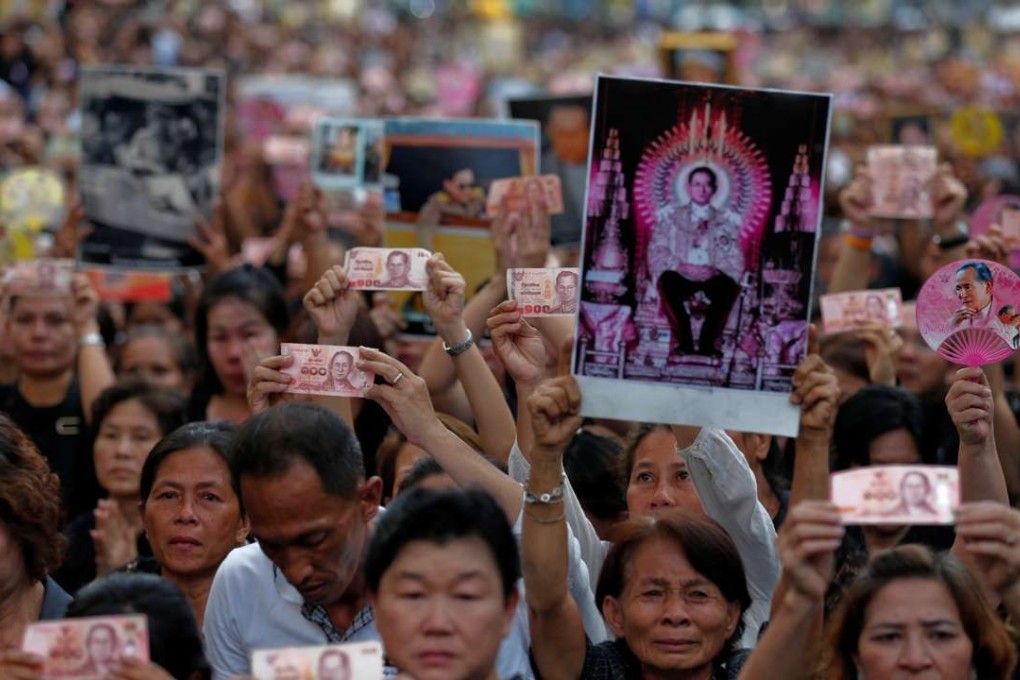Thailand must strive for unity, cooperation and consensus
King Bhumibol’s legacy should live on as the nation faces the uncertainties of life without him

Thais of all generations and backgrounds feel a sense of loss at the passing of King Bhumibol Adulyadej. The grief is genuine; the world’s longest-serving monarch, who oversaw and greatly contributed to Thailand’s growth and development during his 70-year reign, was truly beloved and revered. His legacy is such that his successor will struggle to win the hearts and minds of a populace who will remain in mourning for a year. There are those who will perceive now is the time to agitate for a return to democratic rule, but amid so much uncertainty, it is in the interests of the nation and region that the late ruler’s desire for unity and harmony be respected.
Bhumibol was an extraordinary figure among the world’s monarchs. Born in the US and educated in Switzerland, he took the throne in the wake of the mysterious death of his brother, with a poor grasp of the Thai language and a love for things Western. But with the cold war came insurgencies and instability, and from the 1960s, he dedicated himself to improving the nation. He rightly believed that this could best be achieved by development and he put his energies into promoting health care, education, agricultural innovations and a better standard of living for all. Other sovereign leaders preferred to rule from their palaces, but he had no qualms about personally reaching out to people from all walks of life, including the poor and downtrodden. Among the iconic images of his reign are visits to rural villages in rugged country or awash in floodwaters. That compassion gained him the highest standing among Thais, to the point that his picture hangs throughout the nation.
But it was amid political turmoil in 1992 after unarmed civilians protesting against military rule were killed by soldiers that his worth was best shown. On national television, with the military chief and prime minister kneeling before him, he commanded that they peacefully settle their differences. The result was an end to a cycle of coups and 14 years of democracy during which the nation’s fortunes surged. As his health declined, the military’s desire for power re-emerged and it is now again firmly in control, to the detriment of freedoms.
But the army’s desire to hold on to power also means a measure of stability and, for all its faults, that is what Thailand needs while the succession is decided. Bhumibol’s reign was not without flaws, but he taught Thais the importance of unity, cooperation and consensus. Of all his legacies, that is what the nation must now strive for.